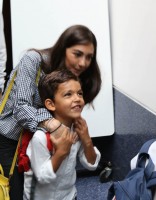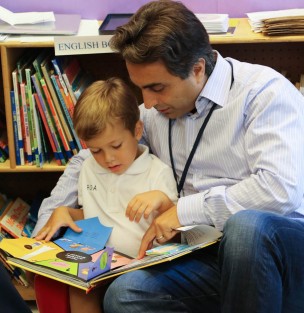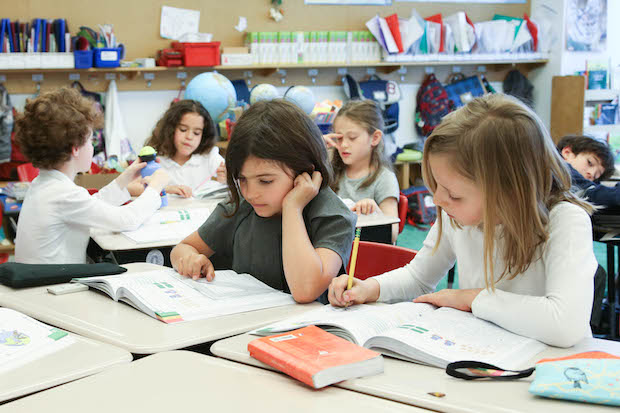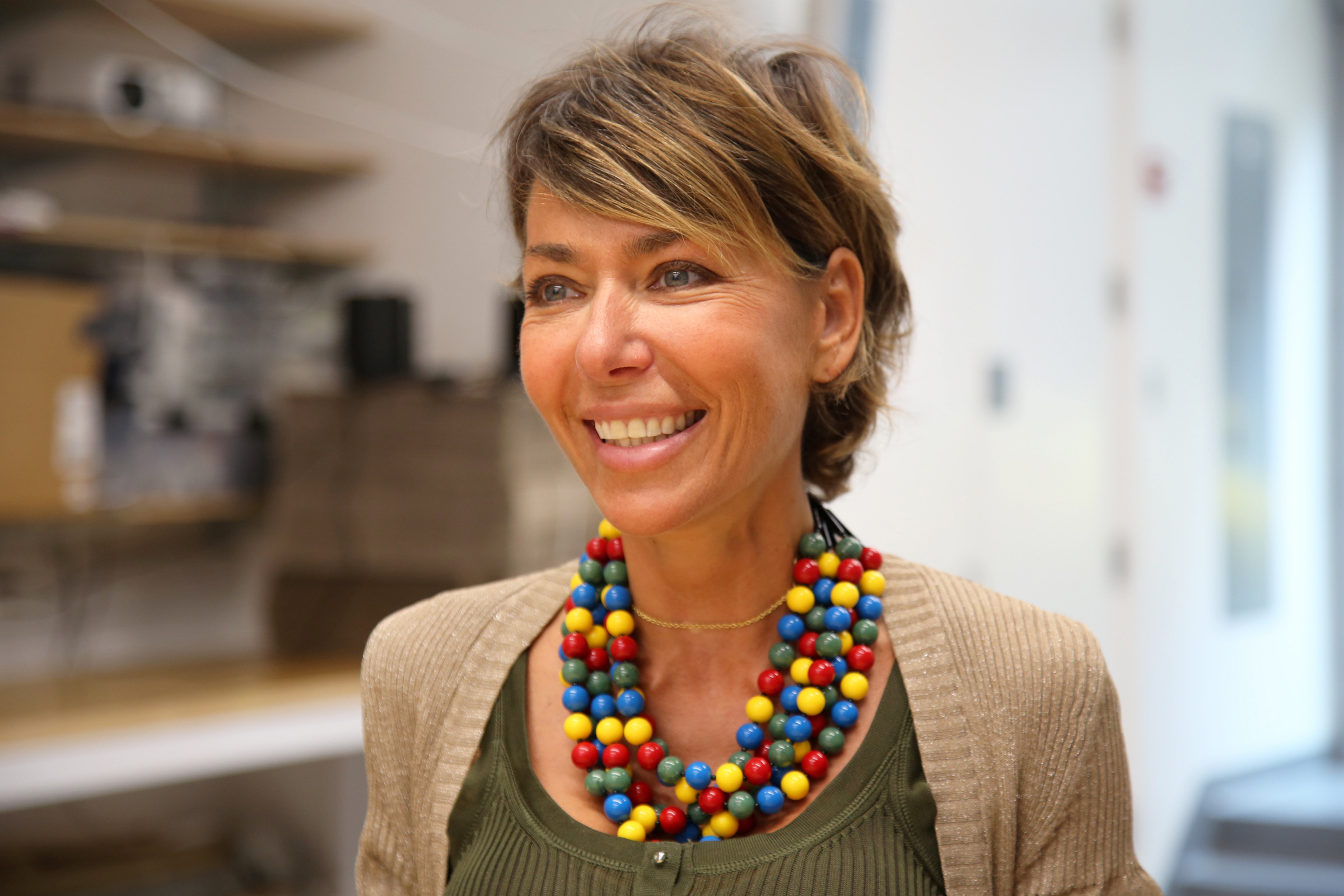It’s back to school! For every adult, both parent and caregiver, whose life is connected to a child in school, a new school year means a fresh start. We create resolutions: “Without a doubt this school year will mean homework done on time with all that newfound knowledge at my child’s fingertips, bedtime stories read, all vegetables eaten, cheerful wake ups, joyful arrivals at school, and serene class departures…”
But, we know in this city that is New York, it’s a race against time. We get caught in its motion and very quickly our dreams of organization, an ideal school year, and an eternally happy child seem to fade.
A magic recipe doesn’t exist, and perfect school years don’t either. But, supporting students without stressing them is possible as you enter this New York marathon…
A good resolution this year is to adapt to your child’s rhythm and not try to keep up with the fast-paced rhythm of New York.
Many parents worry about their dawdling children in the morning and the difficulty they have to arrive on time. At the risk of irritating any New York parent I will echo the words of Canadian journalist Carl Honoré, author of the best-selling Under Pressure, in his praise of slowness. In fact, my own experience has taught me that from an educational standpoint the best approach is to adapt yourself to the rhythm of your child and to take your time.
Adapt your time to your child’s rhythm
A child will instinctively listen to his or her own needs, and if she or he seems too rushed, will react by slowing down the pace even further. In fact, each time a child slows down because his or her own rhythm hasn’t been respected, an extra push will only intensify action in the opposite direction.
Carl Honoré questions the pressure parents may not knowingly place on their children to give better and better and to be more and more perfect, because of the unnecessary stress it creates.
He reminds us that when Einstein was asked how he would spend one hour to save the planet, Einstein responded, “I would give 55 minutes to define the problem and five minutes to solve it!” In general, we all tend to do the opposite in times of difficulty. Einstein teaches us patience in the place of impatience. He teaches us that effort, reflection, learning from mistakes, finding causes, paying attention to details, accepting incertitude, building expertise—all these things take time.
Introduce slowness
 When you live in the city that doesn’t sleep and your child’s own rhythm is controlled by the crazy pace of New York days, how can you introduce slowness into a child’s life?
When you live in the city that doesn’t sleep and your child’s own rhythm is controlled by the crazy pace of New York days, how can you introduce slowness into a child’s life?
– My first advice is without a doubt to remove the non-essential from your child’s schedule. It is a challenge, but not being over programmed is beneficial for a child.
– You are a model for your child. Get in the habit of disconnecting from electronic devices, tap your spirit of wanderer, demonstrate calm and give your own mind a rest to recharge.
– Teach your child to slow down and think before acting. You might give your child a small toy like a tortoise or a snail for the backpack or desk as a reminder.
– When children face difficulty whether academic, social or emotional, teach them to wait till the next day to make any decisions.
– Do a regular activity with your children, a ritual, that they are obligated to do: read a book or a poem, take a yoga class, or even encourage their green thumb at home!
– Teach your child to persevere and not to give up. Steinway built 482 pianos before he achieved success, and Flaubert wrote 52 versions of one of the scenes in Madame Bovary!
– And, finally, plan long-term objectives with your child to reduce the pressure of the immediate.
The question of homework
 To encourage slowness, parents can engage in a regular activity with their children that teaches everyone to slow down, such as reading a book or a poem.
To encourage slowness, parents can engage in a regular activity with their children that teaches everyone to slow down, such as reading a book or a poem.
Often a source of stress, back to school can mean the return of stress at home at the end of the day, especially so because of homework. Two years ago a committee of Lycée primary teachers gathered together to create a homework charter for LFNY primary students. It was designed to help parents better plan for that very stressful moment of the day. And, if the charter itself isn’t enough and homework still ends in despair, here are three small pieces of advice that educators often recommend:
– Establish rituals: It makes family life easier and creates an atmosphere of reassurance and structure for children. Small children can be very demanding, particularly with the non-negotiable. Try doing homework at the same time everyday, for a defined time in advance and in the living room rather than the bedroom without an internet connection, for example.
To remove the stress from homework: establish rituals, resist the temptation to correct and make your child responsible.
– Resist the temptation to correct. The participation of parents in their child’s school is best when it’s connected to daily life: cooking, museum visits, walks in the park. etc. Rather than correcting your child’s notebook ask your child what she or he learned at school during dinner. If she or he has trouble explaining it, reassure him or her that you will talk to the teacher about it.
– Make your child responsible. When homework becomes a source of tears a good approach is to say, “your schooling and results belong to you. I won’t get too involved because that might create tension between us. You have many options: not to do your homework, to do it on your own, or you can decide that you need my help. In this case, I will be available between 6pm and 6:30pm, but that’s all.” I understand this may seem difficult to put in place, even counterintuitive perhaps, but very efficient!
So the back-to-school marathon has started. And you will make it! I hope these small pieces of advice will help you start the school year in serenity. Wishing you all a wonderful back to school!
Photos: Jeff Rogers, Chesna Flora.
About the Author :
Vannina Boussouf grew up on the Mediterranean island of Corsica, where bilingualism is an integral part of identity. She studied English and Spanish at the University of Corsica, and philology and letters in Cordoba, Spain, before starting a career as an elementary teacher and administrator. Vannina relocated to the United States in 2004, where she taught at the International School in Louisiana. She joined the Lycée in 2007 to direct the Primary School, and during her tenure, she has focused on innovative teaching methods that support the development of the whole child in a bilingual setting.




